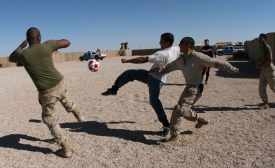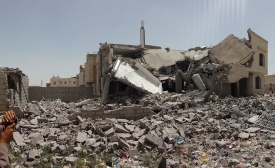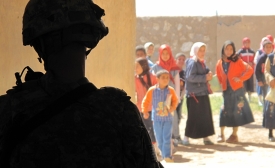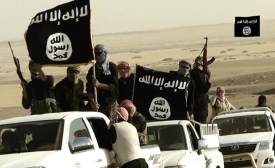isis
Can Donald Trump and Narendra Modi yoke their countries more closely together in a common fight against radical Islam? The early signs look promising, but there’s no guarantee of success. India needs to think more globally about the problem, while the U.S. must pay more attention to India’s regional concerns.
A new report by West Point’s Combating Terrorism Center, “Communication Breakdown: Unraveling the Islamic State’s Media Efforts,” describes in detail the impact of military action on ISIS’ capacity to wage ideological warfare. Promising the coming of the caliphate and portraying the Islamic State as utopian reality about to happen has become all but impossible.

Despite current low levels of trust toward the U.S. from the Iraqi populace, not all hope is lost.

The media is failing to tell the full story, and that's part of the problem.
Iraq has been a difficult place for U.S. public diplomacy for a very long time now, and yet one would think that a war that the U.S. is fighting on behalf of and in collaboration with the Iraqi government and numerous other international partners, a war that is truly an existential one for Iraqi Shia, would produce at least some dividends in terms of Iraqi goodwill toward the United States.

Despite working closely with Iraq against the Islamic State, the U.S. is still regarded with suspicion.
Undersecretary of State for Public Diplomacy and Public Affairs Richard Stengel discussed the Islamic State’s influential social media presence and how the U.S. can counter it on campus Thursday. The 90-minute discussion [...] focused on the work of the Global Engagement Center (GEC), a State Department anti-extremism initiative, which Stengel oversees.

Challenging ISIS has little to do with decreasing their number of Twitter followers.







